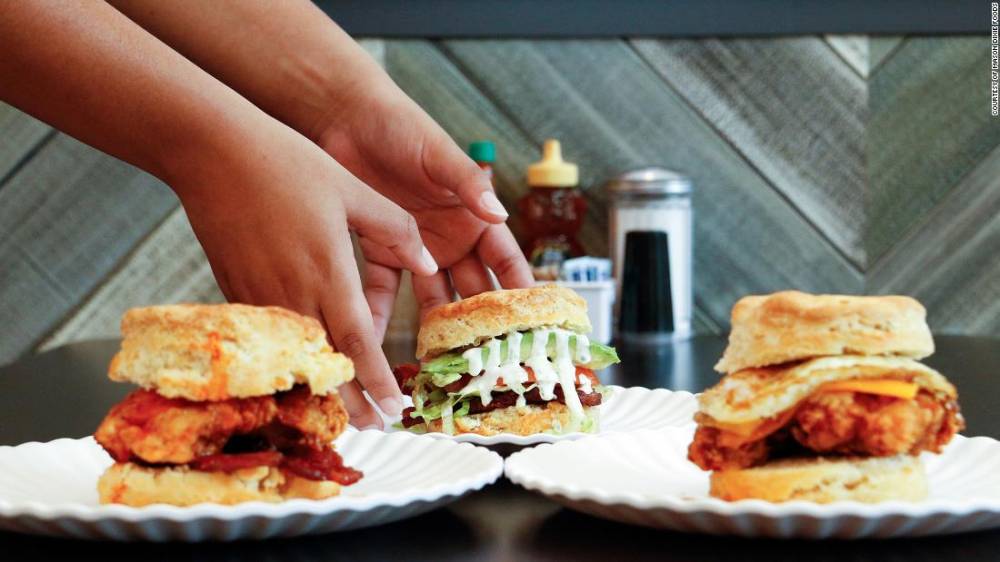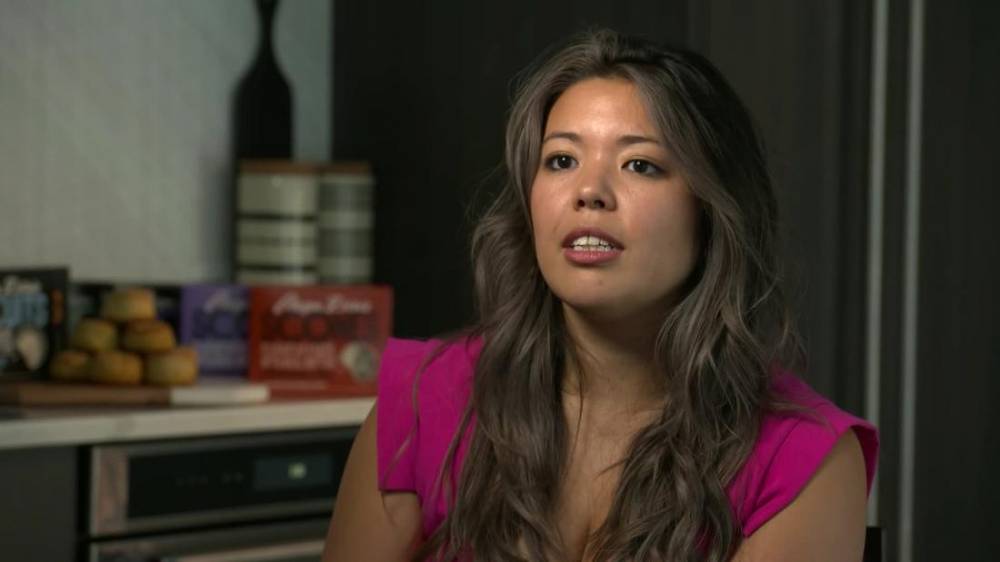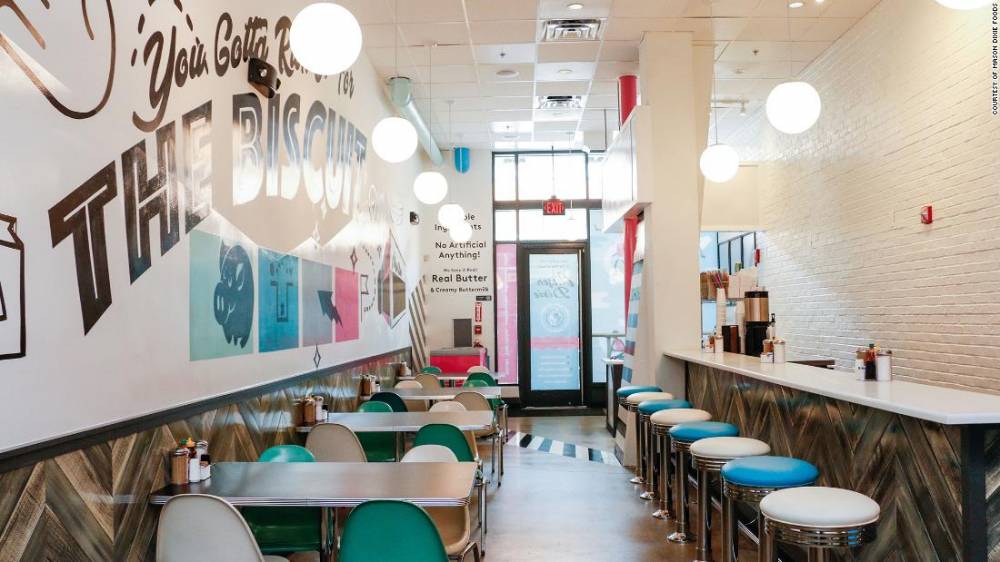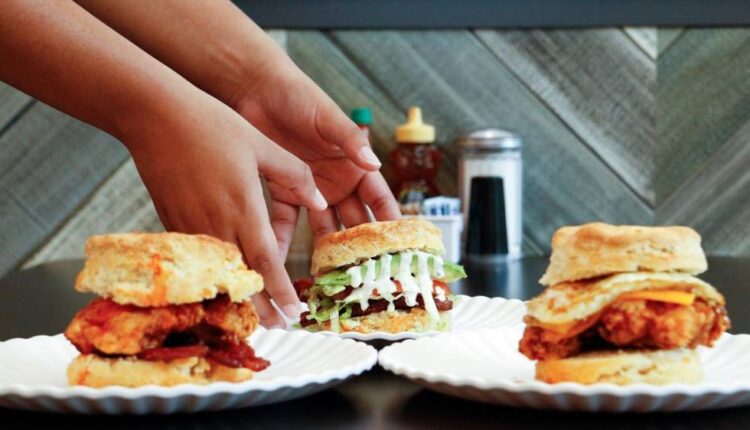Washington, D.C. (CNN)When Ayeshah Abuelhiga first opened her pop-up restaurant, Mason Dixie Biscuit Co., six years ago, it was the next step on her path to attaining the American Dream. But now, in the face of the coronavirus pandemic, she has had to make the wrenching decision that thousands of small business owners across the US have been forced to make: to close her doors for good.
A first-generation American who grew up in public housing and worked multiple jobs to put herself through college, Abuelhiga was still working a corporate job at an information technology company when she launched the Kickstarter campaign that helped her finance the launch of the Mason Dixie Biscuit Co. pop-up shop in 2014.It wasn’t entirely clear there would be a market for her comfort food-driven biscuit breakfast sandwiches in health-conscious Washington, D.C., but customers stood in lines that stretched for blocks — even as locations shifted.

Mason Dixie’s comfort-food driven biscuit sandwiches. “We had lines all the way down to the Costco for like two miles long and it was as if that opening day lasted a month and a half,” Abuelhiga recalled. “It was insane.”The accolades, a permanent brick-and-mortar restaurant location and, most importantly, customer loyalty, followed. The location — in D.C.’s Shaw neighborhood, allowed Abuelhiga and her employees to become a central part of the local community, a crucial and often underappreciated element of small businesses around the country.Read MoreThen the coronavirus pandemic hit. The first few weeks, sales dropped to nearly zero. Even as re-openings started, the restaurant never got above 50% of its regular sales, Abuelhiga said.”It was by early June, we made the call that it was just — we couldn’t sustain the business anymore,” she said. “We shut it down.”The signage and hip murals still sit at its location, but affixed to the door is a letter signed by Abuelhiga and her team. Continuing on in the time of Covid-19 was simply too risky.”It was the last thing I wanted to do and I avoided it at all costs,” she said. “Because I was like: What do you say, you know? What do you say to your team members? What do you say to their families? Right? What do you say to customers that feel like they’ve been there for you the whole time and the whole legacy of how we got started?”

Ayeshah Abuelhiga, had to make the wrenching decision to shutter Mason Dixie Biscuit Co. as a result of the pandemic. Thousands of small businesses around the country are teetering on the brink of failure — or have already shuttered like Mason Dixie.According to a recent report from Yelp, there have been 140,000 total business closures on the web site since March 1. Of those closures, 41% are permanent, according to the company. While the return to economic activity has led to a series of positive signs through the month of June, it has grown highly likely the economy will retreat in the weeks ahead as 27 states have now paused or started to roll back their re-openings.In a recent survey by the National Federation of Independent Business (NFIB), 23% of small businesses reported that they could survive for somewhere between less than one month to six months under current conditions. While more than 4.9 million businesses tapped into the government’s cornerstone aid effort — the Paycheck Protection Program — 22% of the businesses the NFIB surveyed said they will still have to lay off employees as that money runs dry. Other recipients are closing their doors entirely.That was the case with Mason Dixie Biscuit Co.”It helped us obviously get through as much of it as we could. But at the end it was just like, okay, when that gets cut off, then we can’t sustain ourselves,” Abuelhiga said.

Inside a Mason Dixie Biscuit Co. restaurant.It’s an issue lawmakers are keenly aware of, with the drafters of the federal aid program acknowledging that when the Paycheck Protection Program was put together, there was simply no sense that the economic devastation would drag on for as long as it has. Negotiations over the next round of small business aid, a central component of the next stimulus package talks that will begin next week, have centered on the hardest hit — and smallest — businesses.For Abuelhiga, there has been a “bittersweet” twist to the crisis — one that underscores the uneven way the coronavirus has affected different sectors of the economy. Her second business, which makes frozen biscuits and other frozen baked goods, has experienced significant growth during the pandemic. It’s a business that got its start over the last several years due to the same customers who frequented her restaurant. “Never in a million years could we have planned that it was going to be as crazy as it was. The demand search for us was upwards of 200% month-over-month,” Abuelhiga said. Her consumer product business, Mason Dixie Foods, which had already become one of the biggest regional players in the market before the pandemic, is in more than 5,000 grocery stores. Her team for the business has grown from 2 to 11 since January.Most imperiled small business owners, of course, aren’t that fortunate. But Abuelhiga’s experience underscores a reality for many: Efforts to innovate and find a way around the crisis are extensive and, in her view, will likely change the way entire industries operate.”I think that everyone out there that’s fighting to get through day-to-day that is thinking about what’s the next way they can pivot, or [whether] they’re shutting down. I can’t say that you should feel like it’s failure,” she said. “It’s really just closure on a chapter. But it forces you to think: What’s the next step? What’s, what’s the next move?”
Abuelhiga also made something else clear: The door isn’t closed on a future brick-and-mortar restaurant sometime in the post-coronavirus future.”There isn’t a bone in my body that doesn’t want to try this again,” she said.
Source: edition.cnn.com

